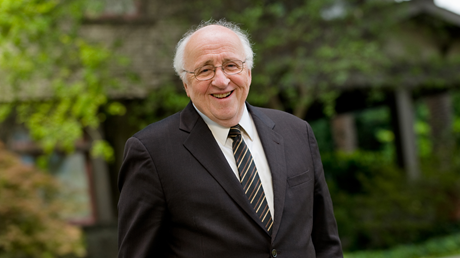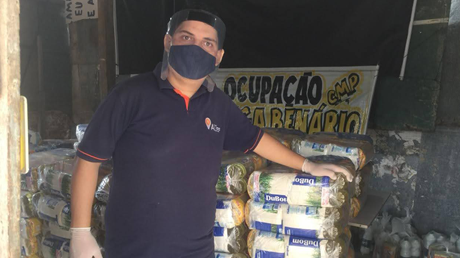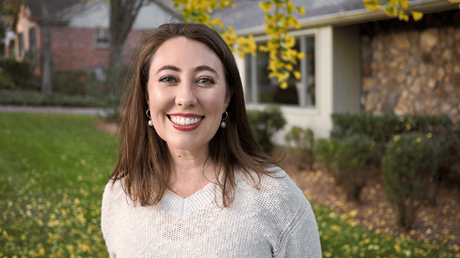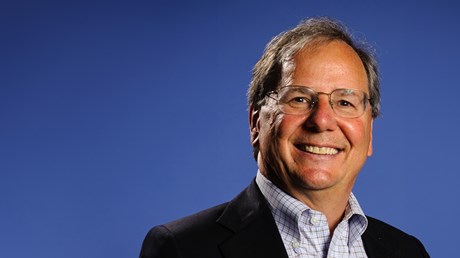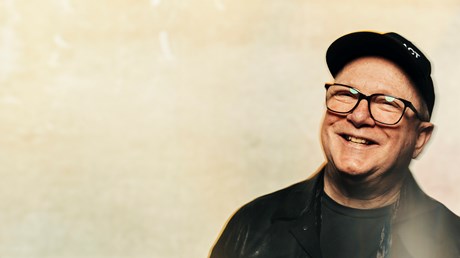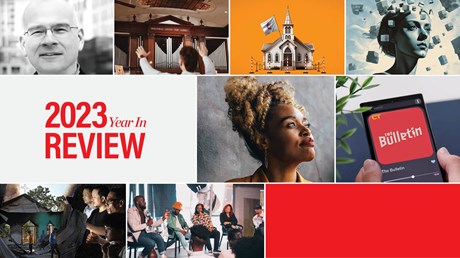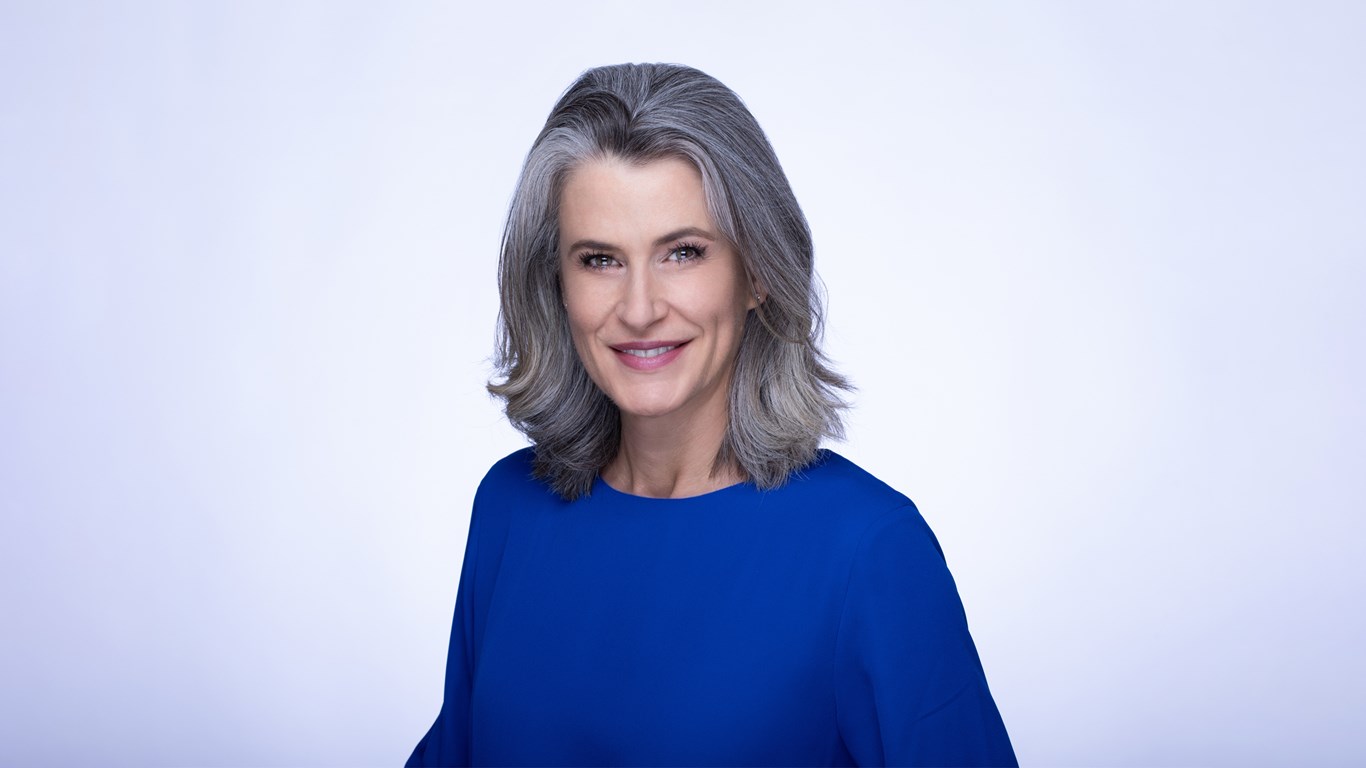
Will you help encourage and connect the church?
Give NowWill you help encourage and connect the church?
Give NowFrom the time she was little, Amy Burgess loved hearing people’s stories and felt as though she had endless questions for those around her. She loved to uncover the truth and look for new angles on situations. These passions made her decision to pursue journalism feel like a no-brainer. It was a career that would give her permission to dig into new stories and get paid to help tell them.
“I can sit and talk with people forever, asking question after question,” Amy explained. “If you do that as a random person, it can be weird, but if you can say you’re working on a story, then you can ask whatever you want and people are willing to help out.”
Amy started her career path in journalism as an undergraduate student at Biola University. Biola gave her a strong foundation for her vocation. Not only was Amy part of a community of young believers who were committed to their faith, but she also found a safe place to have hard conversations about faith and the role journalism should play in a free and democratic society.
“It was very impactful for me to think about journalism and how its core principles are integrity, honesty, and objectivity,” Amy said. “There is courage required to participate in certain aspects of journalism and to bring truth, whether it’s appreciated or not.”
Amy started her career as a daily newspaper reporter. Her first week on the job, she had to cover the accidental drowning of a man on a nearby lake. She was one of the first people on the scene and the first person to talk to the man’s friend who had been in the boat with him when the accident occurred.
That story sticks with Amy to this day because of the weight of the situation. The man’s friend was in one of the defining moments of his life, and Amy was present with him. “It was a heavy weight, but also it felt like a sacred privilege to be able to be a compassionate presence with him in that moment,” Amy said.
Over the years, Amy has worked as a news reporter, freelance journalist, marketing consultant, and many more roles, but the weight of journalism and what it brings to the world has stuck with her and led to her appreciation of Christianity Today with its work in Christian journalism over nearly 70 years.
“If you look back at when Billy Graham founded Christianity Today, 1956, people had an almost blind trust of anything that was in print,” Amy said. “There was trust in the voices of journalism. It was great for Christianity Today to be born in that and to be the voice that represented kingdom topics.”
Now Amy sees that our world has a completely different view on journalism, and there is a common distrust of media. People are constantly getting scams on their phones or in their emails. As a consumer it can feel like you have to be on your guard all the time.
“It’s such a hard time to establish credibility, authenticity, sincerity, truthfulness, trustworthiness, and I think Christianity Today does a great job of that,” Amy explained.
Amy was recently talking with a friend who was having trouble finding the truth about a certain topic. Even though her friend had explored multiple sources about her question, they were all saying different things and she couldn’t decipher which one was true. They all seemed to be drawing from the same facts and interpreting them differently.
It isn’t enough anymore to do research and find a path through the facts. Amy believes that in today’s world, we have to take more responsibility than that. Christians have always been searching for trustworthy sources to help us navigate the emerging issues of our day. We continuously have to go back to Scripture and figure out how to align modern life with the eternal truths of God’s Word.
“It’s not always easy to pick apart that which is cultural and that which is absolute,” Amy reflected. “Christianity Today offers a place for intelligent, respectful, informed conversations about these issues, and that’s a rare space these days.”
Some of the biggest emerging issues for Christians in this present context—women in ministry, gender identity, and politics—are important to be able to discuss. Amy believes that, of all people who should be able to have civil discussions based in love for each other, Christians should be at the front, and it’s heartbreaking to see the opposite of that so often.
“Christianity Today is addressing the modern issues that are confronting Christians in the context they live in,” Amy said, “and trying to create space for conversations around truth-seeking.”
Over the last five or six years, Amy became aware of some of the heat CT takes for having difficult conversations and bringing different voices to important topics. It astounded and frustrated her and was one of the things that prompted her to donate to Christianity Today.
When Amy and her family reached a point where they were able to expand their giving, she started looking around at what was important to her and what she could invest in that had the potential for far-reaching impact. Journalism, and in particular Christianity Today, was one of those things.
“Christianity Today’s ability to cover the kingdom works globally, to remind us of the bigger picture and be courageous enough to broach topics and discussions that can make people angry” are reasons she’s giving to CT.
Amy never regrets the time spent reading CT articles. “I know more, I understand more, I have a broader perspective at the end of reading an article in CT. It’s a huge benefit to me in that way,” she claimed.
Amy wants to contribute to the work Christianity Today is doing to hold space for important civil conversations around topics of faith and culture. She feels one thing we can do with our money is encourage groups we care about.
“It’s like casting a vote in a way,” Amy explained. “I vote for this existing. I vote for Christianity Today to be a thriving part of Christian discourse. Sending money is a way I can do that.”



